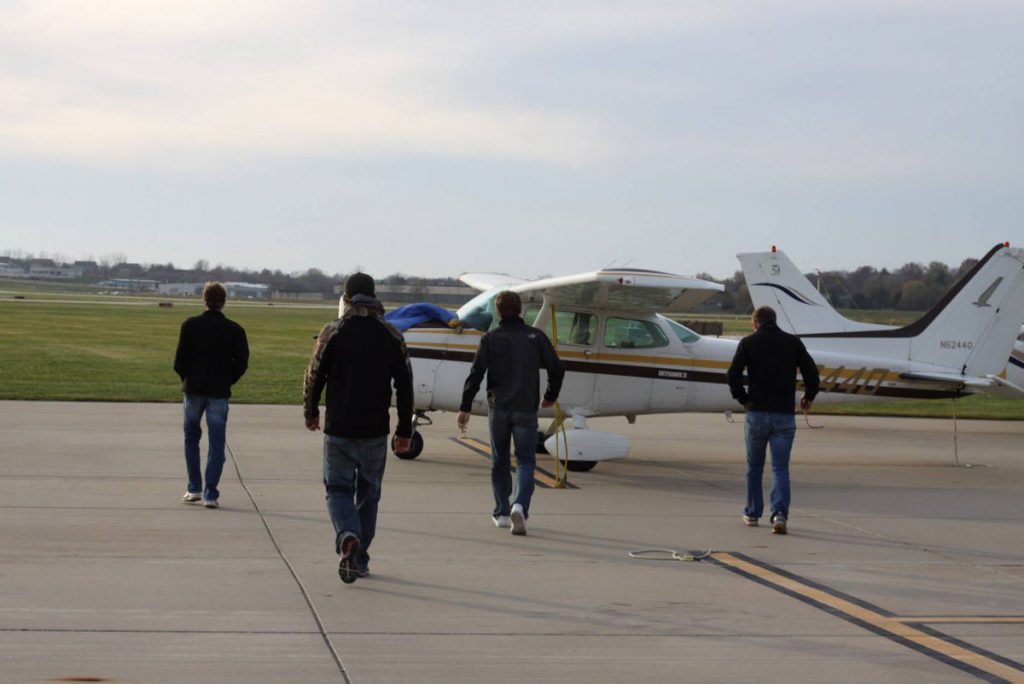
This story was originally published by Lindsay Greifzu with the Iowa State Daily.
It’s hard to get much of anything of value for $30, but an ISU club gets its members off to a flying start toward their pilot’s license with just that.
The Flying Cyclones is a club for aviation enthusiasts of all kinds. Members, after paying yearly dues of only $30, have the chance to go on flights with the club’s pilots, attend fly-ins and go on trips.
The club currently has about 350 members, but it is expecting more growth during the school year. A majority of members do not have their pilot’s license, and the Flying Cyclones is a club for anyone interested in flying.
“I’ve loved aviation ever since I was a kid, and I get to hang out with people who have the same interests as me,” said Andrew Advani, junior in aerospace engineering and president of the Flying Cyclones.
The Flying Cyclones likes to keep members occupied with events during the school year. All flights are done with Hap’s Air Service in Ames. Members can take part in recreational flights around Ames and the local area by using an online scheduler called CyFly.
Most of the flights are local to in-state aviation museums, air shows and fly-ins. Fly-ins are where several pilots fly into one airport, eat lunch, share stories and build relationships within the aviation community. The club does these in the fall and in the spring, and it encourages new members to attend fly-ins and meet new people.
Nathan Eick, senior in mechanical engineering and treasurer of Flying Cyclones, has his pilot’s license and has been flying for two and a half years. He started in high school and continued at Iowa State once he found the club.
“The community of pilots is really broad,” Eick said. “There are a lot of us. We’re not commercial pilots, just general aviation pilots with a really cool community.”
In addition to recreational flights and fun events, the club offers classes for aspiring pilots. Acquiring a pilot’s license can be a lengthy process and is composed of a written and practical exam.
Flying Cyclones can help students acquire a license by teaching the ground school program, which meets twice a week for about 10 weeks during the fall semester. But the club does not have jurisdiction to give licenses.
“The club has a certified flying instructor that teaches ground school to help prepare for the written test,” Advani said. “It teaches about how the plane works, technical textbook knowledge of aviation.”
If a member wants to continue on to receive a license, he or she must pay for the rest of the training, which is usually about $5,000-$10,000. This includes both of the exams and 40 hours of flight time. It takes an average of about six months to acquire a pilot’s license and can be done through Hap’s Air Service or any other air service around the country.
Though it can be an expensive hobby, Eick compares flying a one-engine plane to driving a car.
“It’s a practical means of transportation,” he said. “Aviation is something that will touch us all in the future.”